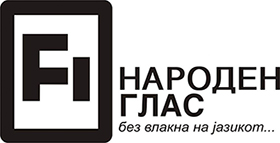Вес Мичел е тексашанец со образование во политички науки, магистратура на школата за дипломати на Џорџтаун Универзитет, докторски студии на универзитетот во Берлин.

Зборува германски јазик, му бил асистент на Мит Ромни, десничарска политичка икона во САД кој беше и неколку пати кандидат за претседател на САД, екс гувернер и иден сенатор.
Вес има напишано две книги до сега:

From the Baltic to the South China Sea, newly assertive authoritarian states sense an opportunity to resurrect old empires or build new ones at America’s expense. Hoping that U.S. decline is real, nations such as Russia, Iran, and China are testing Washington’s resolve by targeting vulnerable allies at the frontiers of American power. The Unquiet Frontier explains why the United States needs a new grand strategy that uses strong frontier alliance networks to raise the costs of military aggression in the new century.
Jakub Grygiel and Wess Mitchell describe the aggressive methods rival nations are using to test U.S. power in strategically critical regions throughout the world. They show how rising and revisionist powers are putting pressure on our frontier allies—countries like Poland, Israel, and Taiwan—to gauge our leaders’ commitment to upholding the U.S.-led global order. To cope with these dangerous dynamics, nervous U.S. allies are diversifying their national-security “menu cards” by beefing up their militaries or even aligning with their aggressors. Grygiel and Mitchell reveal how numerous would-be great powers use an arsenal of asymmetric techniques to probe and sift American strength across several regions simultaneously, and how rivals and allies alike are learning from America’s management of increasingly interlinked global crises to hone effective strategies of their own.
The Unquiet Frontier demonstrates why the United States must strengthen the international order that has provided greater benefits to the world than any in history.
Jakub J. Grygiel is the George H. W. Bush Associate Professor at the Paul H. Nitze School of Advanced International Studies at Johns Hopkins University. He is the author of Great Powers and Geopolitical Change. A. Wess Mitchell is president and cofounder of the Center for European Policy Analysis (CEPA).

The Godfather Doctrine draws clear and essential lessons from perhaps the greatest Hollywood movie ever made to illustrate America’s changing geopolitical place in the world and how our country can best meet the momentous strategic challenges it faces.
In the movie The Godfather, Don Corleone, head of New York’s most powerful organized-crime family, is shockingly gunned down in broad daylight, leaving his sons Sonny and Michael, along with his adopted son, consigliere Tom Hagen, to chart a new course for the family. In The Godfather Doctrine, John Hulsman and Wess Mitchell show how the aging and wounded don is emblematic of cold-war American power on the decline in a new world where our enemies play by unfamiliar rules, and how the don’s heirs uncannily exemplify the three leading schools of American foreign policy today. Tom, the left-of-center liberal institutionalist, thinks the old rules still apply and that negotiation is the answer. Sonny is the Bush-era neocon who shoots first and asks questions later, proving an easy target for his enemies. Only Michael, the realist, has a sure feel for the changing scene, recognizing the need for flexible combinations of soft and hard power to keep the family strong and maintain its influence and security in a dangerous and rapidly changing world.
Based on Hulsman and Mitchell’s groundbreaking and widely debated article, “Pax Corleone,” The Godfather Doctrine explains for everyone why Francis Ford Coppola’s epic story about a Mafia dynasty holds key insights for ensuring America’s survival in the twenty-first century.
John C. Hulsman is the Alfred von Oppenheim Scholar in Residence at the German Council on Foreign Relations in Berlin. He is the coauthor, with Anatol Lieven, of Ethical Realism. A. Wess Mitchell is cofounder and director of research at the Center for European Policy Analysis (CEPA) in Washington, D.C.



.gif)
.gif)














